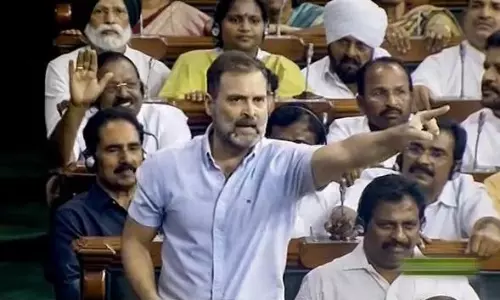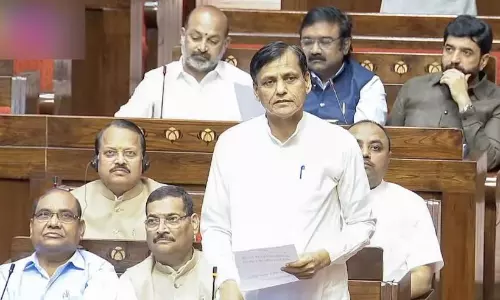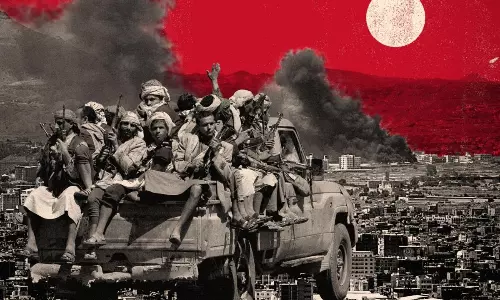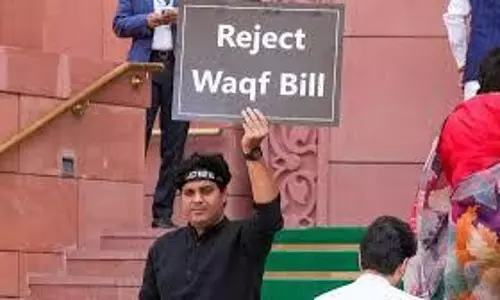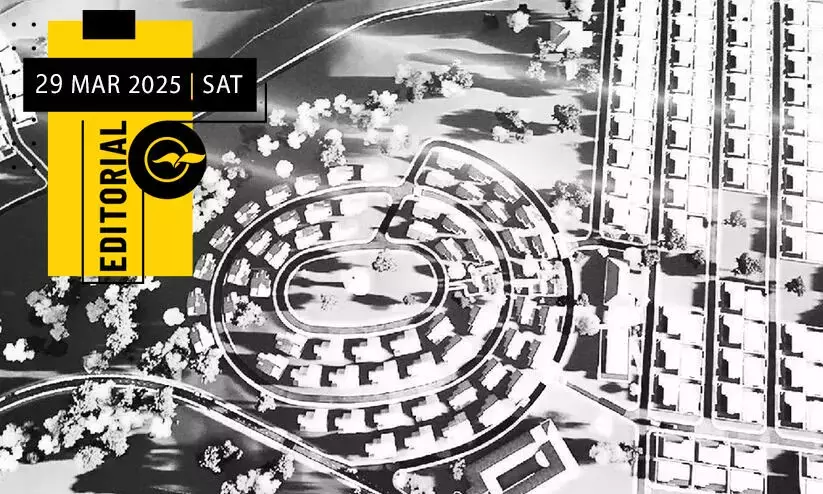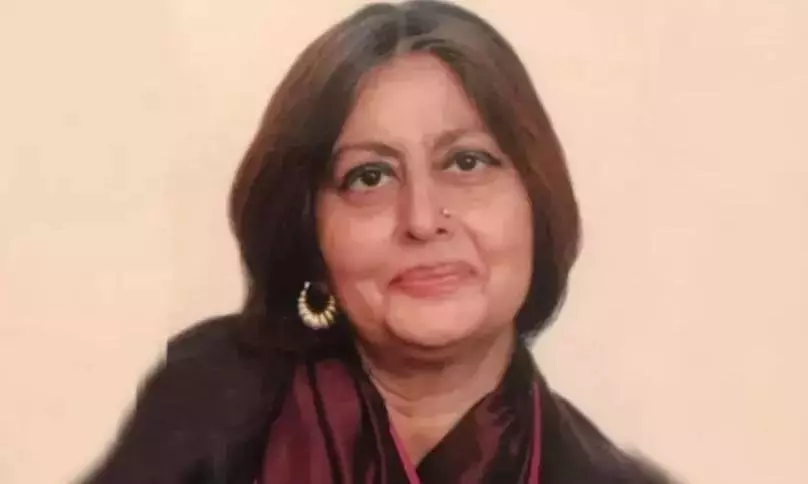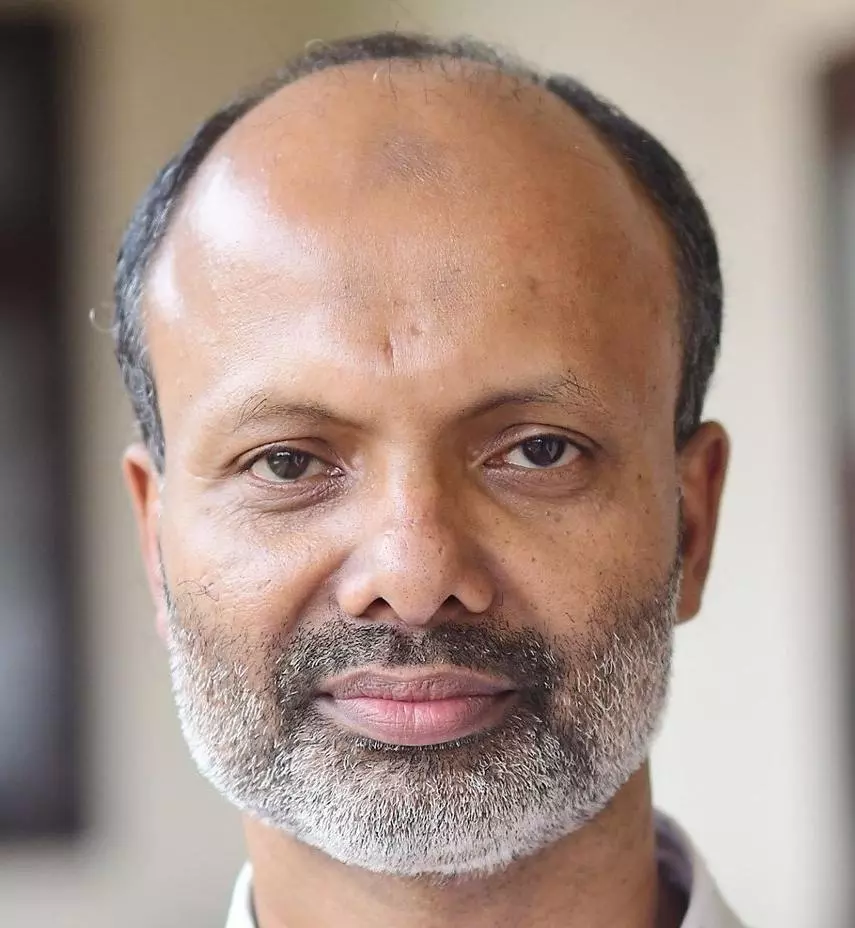
Humra Quraishi: A life that melts away for those who have nothing
text_fieldsWhenever I met Humra Quraishi, her conversation would begin and end with a deep concern for the have-nots. A sympathy for the downtrodden would be writ large on her face that would turn red in that sentiment. In the midst of it, as if for relief, there would be a query if there was anything of comfort and peace from Kerala. Mostly that long torrent of sorrow would end with a soliloquy: how could one not write when one turns sad; and if we remain silent about those whose tears dry up in the sea of pang, how can we claim to he humans?
And Humra Quaishi, whose inner self melted to its last in the tribulation of others, a writer with that rare human touch, succumbed to heart attack a few days ago. Until that moment she kept writing without a stop. And the last column written on the day following New Year's Day ended with a poem by Sahir Ludhianvi.
"If you see anger in my songs this is the reason for that/ when I see hungry farmers, the suppressed, the destitute, and the helpless/My heart can't sit at rest in the nest of happiness/Even if I wish, I cannot write melodies of love".
I had wondered why these stories and writings get immersed in despair. A friend who had seen her writing in 'The Statesman' had also sought an answer to this question, why Humra's stories didn't have even a speck of humour. Her reply to that was 'I am not a joker to crack jokes'.
From experience to empathy
Born into a prominent family in Aonla near Bareilly in Uttar Pradesh, her fatheerIkhtidar Ali Khan was an engineer working with the government. Her mother's side was also an upper-middle-class family of government servants. She has once written about having heard the word 'riot’ right since her childhood from her grandfather who used to tell tales of the police atrocities in Muslim backward areas. It was from the atmosphere of UP marked by religious and caste discrimination, torture and riots that she understood how miserable the backward lives of Muslims and Dalits were.
Her grandfather, who had set out to meet relatives who got stuck in Pakistan during Partition died in Lahore. Hearing the news, her father who at the time was an engineer in Jhansi decided to leave for Lahore, but his relatives stopped him. Their warning was that as a government servant , he should not get caught in cases for that reason. That was how her pen got filled with the ink of sympathy, as one bred on stories of Muslim alienation and of caste discrimination towards the poor and lower castes.
With Rajmohan Gandhi @ Madhyamam Litfest 2017.
Stories of Real Human beings
She would explain how terrifying Muslim life in North India is. Not from reading, but from travelling as a journalist, observing the lives of ordinary people, and talking to them, she would say. She preferred to be a writer living in the ordinary roles of a woman, mother, and Muslim. She once mentioned that she turned to freelance journalism instead of becoming a working journalist because she believed a mother's primary duty is to provide a good education and nurture her children with maternal love.
She expressed disdain for those who forget their roots and discard their religious and caste identities once they achieve success in writing. One of the topics in her last column was her anger towards Bollywood stars who, while portraying farmers in movies, did not speak up for the poor who joined the farmers' protests. She preferred real people without pretences. Her closeness to Khushwant Singh, whom she saw as a father figure after her father's death, was also due to this. Together with Khushwant, she wrote works like 'Absolute Khushwant,' 'On Religion,' and 'The Good, the Bad, and the Ridiculous.'
Kashmir was another favourite subject of Humra Quraishi. Having visited there numerous times, interacted with the people and leaders, and written three books and numerous articles, she was one of the few writers trusted by Kashmiris. The notes written by Anuradha Bhasin, Iftikhar Gilani, and others in her memory testify to her empathy for Kashmiris. Her last work, published by Oxford, 'The Diary of Gul Mohammad,' is also a story of Kashmir. Written as the diary entries of a 14-year-old Kashmiri orphan boy who travels from Srinagar to Kozhikode in Kerala via Delhi seeking refuge, it narrates the current plight of Indian Muslims.
Connection with 'Madhyamam'
Renowned journalist and author Yoginder Sikand once visited 'Madhyamam' during a trip to Kerala. After returning, he wrote about the successful media experiment in Kerala in some periodicals. Reading this, Humra expressed her willingness to write for 'Madhyamam.' Thus, the column 'Nerakkurikal' (Signs of the Times) began in 2009. The first article was about the prison life of Binayak Sen. Along with contemporary issues, the column included book reviews and cultural experiences from Delhi and elsewhere, which received excellent responses from readers. She often said that her goal was to make more people aware of these issues. The proceeds from her articles and books were sent to orphanages in Kashmir and other places.
Humra speaking at Madhyamam Lit Fest 2017 in Tirur, Kerala.
When invited to the Madhyamam Literary Fest in 2017, she accepted with the condition that she wanted to visit the children at the JDT orphanage in Kozhikode. She remembered her previous visit there. After the fest, she went to JDT with sweets for the children, distributed them, and inquired about their well-being before leaving. The plight of orphaned childhoods in Indian madrasas and orphanages was the theme of her last work. In the journey of a 14-year-old Kashmiri orphan boy from Srinagar to Kozhikode via Delhi, she narrated the crisis of Muslim life in various parts of India.
Humra Quraishi departed, speaking and fighting for those who had no one, without revealing her struggles and grievances to anyone. She was a beloved friend, known for her hospitality to those close to her. As a journalist and writer who deeply embodied humanity in her work, she will always stand out.




